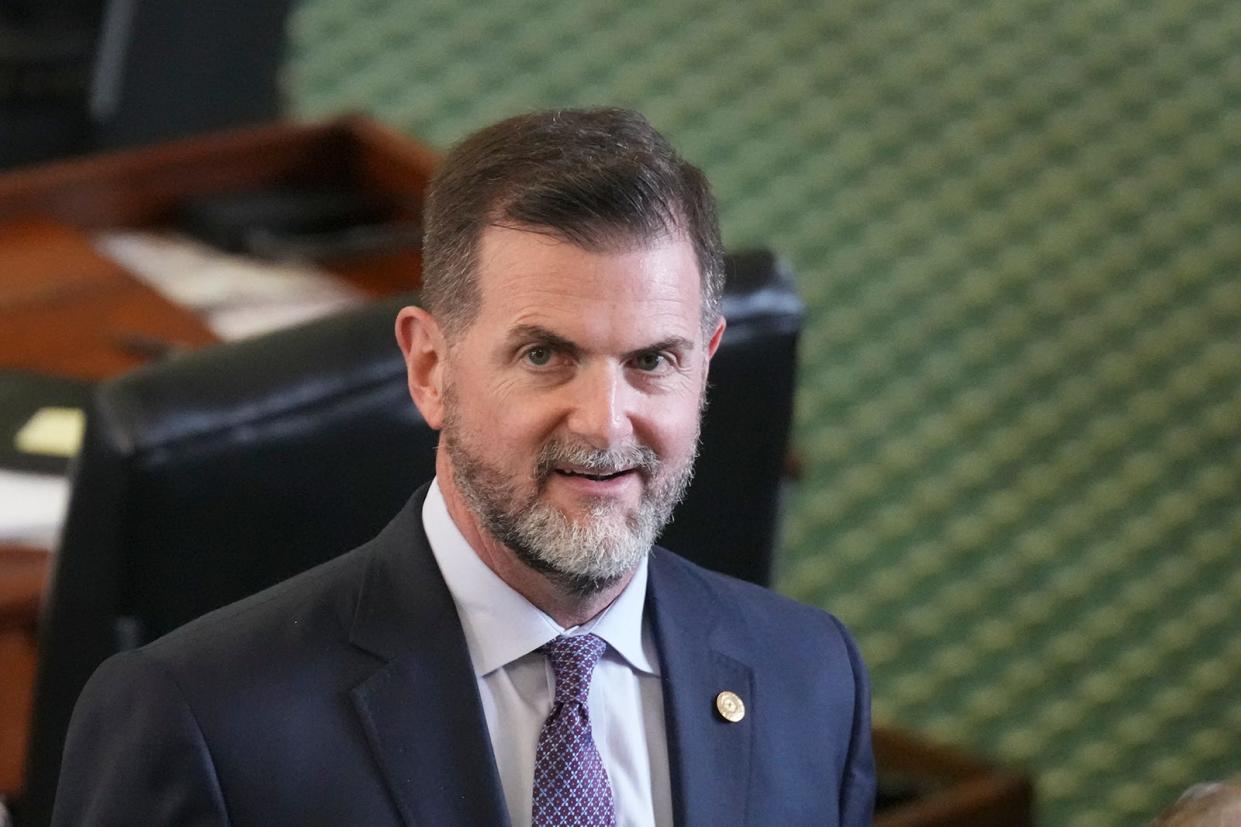Senate Education Committee is warning universities to comply with anti-DEI law. Here's why

The Texas Legislature last year banned Diversity, Equity and Inclusion offices and initiatives at public universities and colleges; now the Senate Committee on Education is calling to the carpet the administrators of the institutions of higher education to prove how the schools are complying with Senate Bill 17.
Sen. Brandon Creighton, R-Conroe, who wrote the anti-DEI law, warned university system chancellors and regents in a March 26 letter that lawmakers can take legal action and even freeze state funding if they do not comply with the law.
“While I am encouraged with the progress I have seen from many institutions of higher education in implementing SB 17, I am deeply concerned with the possibility that many institutions may choose to merely rename their offices or employee titles,” he wrote. “This letter should serve as notice that this practice is unacceptable.”
More: Higher education in Texas: What lawmakers hope to tackle in the 89th legislative session
The Senate Education Committee is holding a hearing in May for university system chancellors and general counsels to lay out how their institutions are ensuring that there are no DEI offices or training, no diversity statements in hiring and only merit-based employment offers with no considerations for race, sex, color, ethnicity or national origin.
Creighton's letter was sent to the University of North Texas System, Texas Woman’s University System, Texas A&M University System, University of Texas System, University of Houston System, Texas Tech University System and Texas State University System.
Creighton told the American-Statesman that he sent the letter to give university administrators advance notice of the hearing, and he said that what the committee learns from the discussions will help guide any actions.
"These institutions have had sufficient time to implement this new law, and I expect that the committee will hear from university leadership on their successes and any obstacles they've encountered," he said in a written answer to the Statesman. "By providing them clear directives, the committee can work efficiently to determine whether more needs to be done next session."
SB 17, which went into effect Jan. 1, resulted in the quiet and hurried closing of DEI programs at all Texas public colleges and universities. The office and program shutterings at UT in Austin included the Multicultural Engagement Center and Monarch, a program to help undocumented students. UT-sponsored student multicultural organizations lost school funding. The Gender and Sexuality Center was replaced with the Women's Community Center, and the Division of Diversity and Community Engagement was replaced with the Division of Campus and Community Engagement.
More: What UT lost with SB 17: American-Statesman's guide to changes due to Texas' anti-DEI law
SB 17 does not apply to academic course instruction, research, registered student groups, guest speakers, data collection, recruitment, guest speakers or policies implemented to support students without regard to race, sex, color or ethnicity.
'Everything’s on the table'
Some students, professors and lawyers have complained that the universities are overcomplying with SB 17 and creating a chilling effect on campuses by removing protections against the historical exclusion of students of color and those who are LGBTQ+.
“DEI offices are not and have never been an instrument to promote one race or gender or sexual orientation above another,” Courtney Avant, legislative counsel for the Human Rights Campaign, an LGBTQ+ rights nonprofit, told the Statesman in January. "They have been a critical tool to address inequality and discrimination."
Those against DEI policies, however, say the law doesn't go far enough.
The Texas Public Policy Foundation, a conservative think tank, held its annual policy summit in Austin the week before Creighton sent his letter to university system administrators. The summit had multiple panels about higher education, including one in which Sen. Paul Bettencourt, R-Houston, said that "everything's on the table" next legislative session to keep Texas a leader in the fight against "woke" ideologies — or identity politics — on college campuses. He said the Legislature is not satisfied with SB 17 alone, and that more needs to be done.
"We're going to ask some very tough questions to make sure that it's actually being enacted in the way that the bill intended," Bettencourt, who serves on the Senate Education Committee, said at the panel about SB 17.
More: 'Exhausted', 'confused,' 'unprecedented': Texas professors, students reflect on DEI ban
The Chronicle of Higher Education is tracking 82 bills targeting DEI across 28 states since 2023. So far, 12 have become law. Creighton said SB 17 is the strongest yet.
"Recognized as the most robust DEI (Diversity, Equity, and Inclusion) prohibition in the nation, this bill mandates a fundamental shift in the operation of our higher education institutions," Creighton said in his March 26 letter. "The Texas State Legislature, along with the people of Texas, anticipate that each institution will undertake sincere efforts to align with the bill's provisions, ensuring a merit-based environment where every student, faculty, and staff member can strive for and achieve personal excellence."
This article originally appeared on Austin American-Statesman: Texas Senate panel sets SB 17 hearing, warns universities to comply
Solve the daily Crossword

